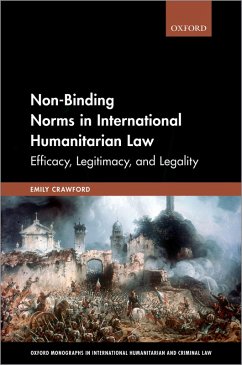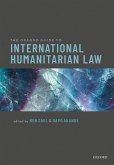This monograph examines and analyses the phenomenon of non-binding instruments (also known as 'soft law') in the law of armed conflict, or international humanitarian law. In the past 30 years, there have been several non-binding instruments created, designed as either 'best practice' guidelines, or (re)statements of applicable law. These instruments are not treaties, but they nevertheless put themselves forward as authoritative statements of what the law is and, in some instances, what the law should be. Soft law instruments can be dynamic, prompt, and responsive measures to address pressing issues in armed conflicts. By drawing on the skill of a small group of experts, these instruments can be debated and drafted in a timelier manner than if these issues were to be left to the international community of 194 States to resolve. Furthermore, because these instruments do not have to be sent for debate to an international conference of States, it means that the provisions are not subject to the usual revisions, reservations, and dilutions that come with attempting to reach consensus. However, there are potential and actual problems with these instruments and the processes that bring them to fruition, and how they are received in practice by States and other stakeholders. This volume looks at the benefits and drawbacks for States and non-State actors with regards to soft law, whether they are effective additions to the law of armed conflict, analysing the development through the lens of theories of legitimacy and legality in international law.
Dieser Download kann aus rechtlichen Gründen nur mit Rechnungsadresse in A, B, BG, CY, CZ, D, DK, EW, E, FIN, F, GR, HR, H, IRL, I, LT, L, LR, M, NL, PL, P, R, S, SLO, SK ausgeliefert werden.









